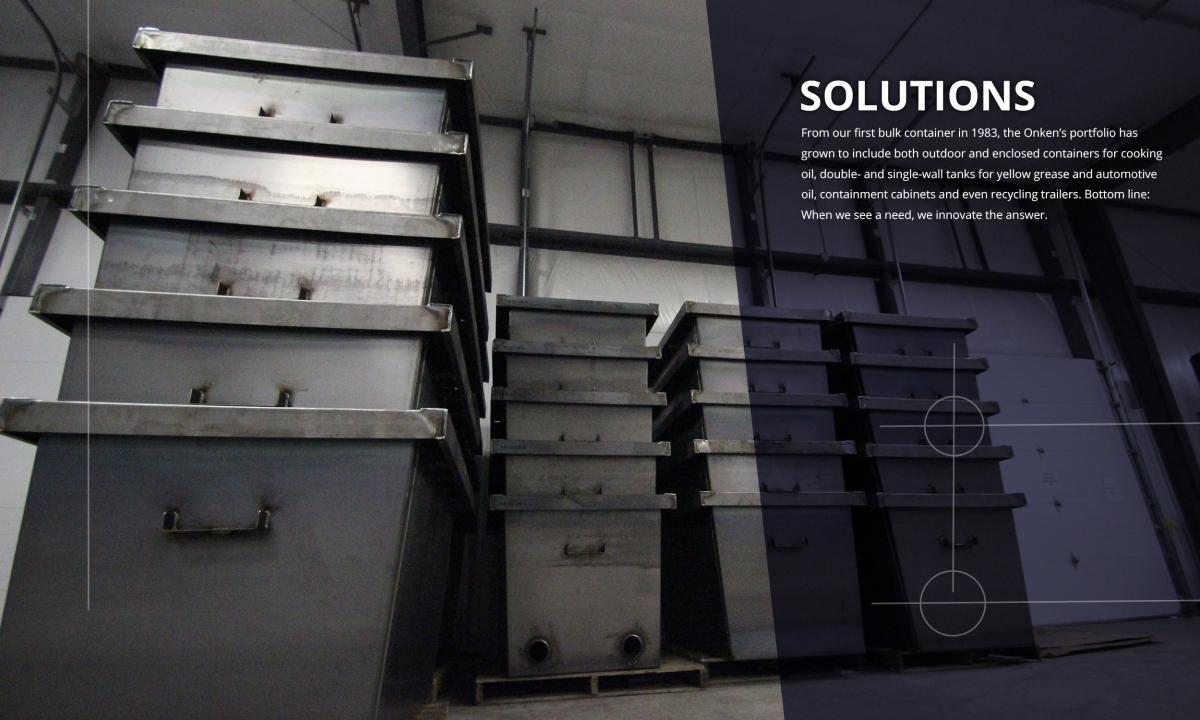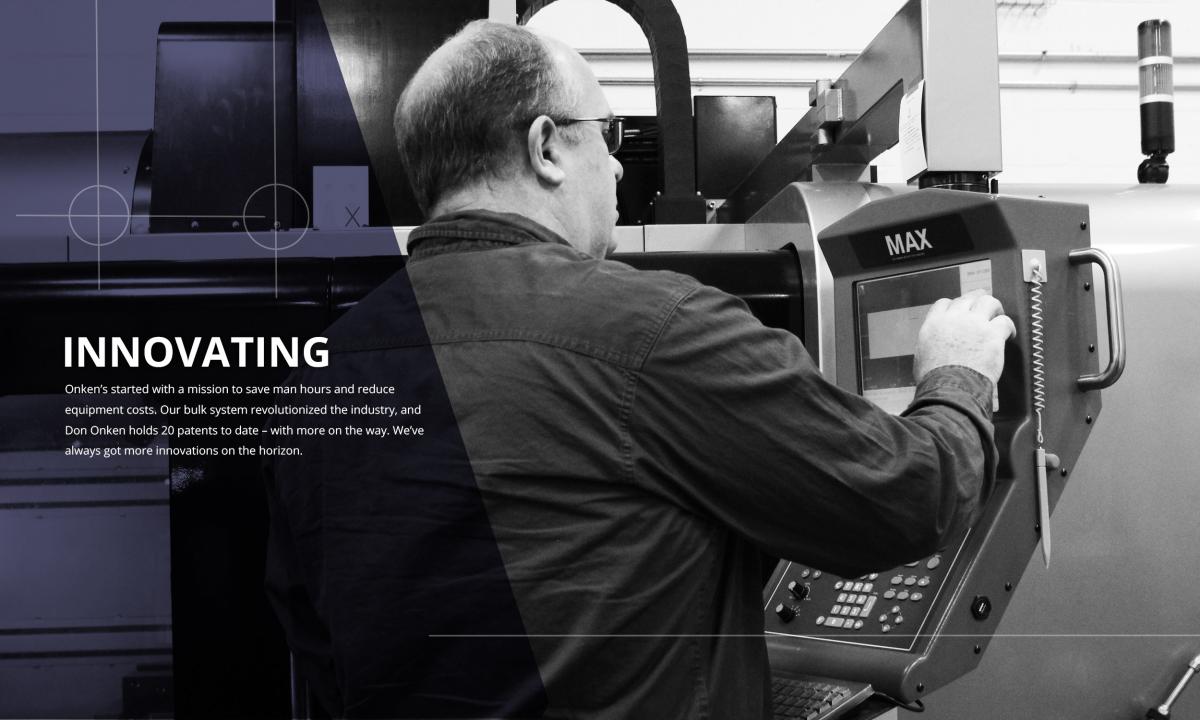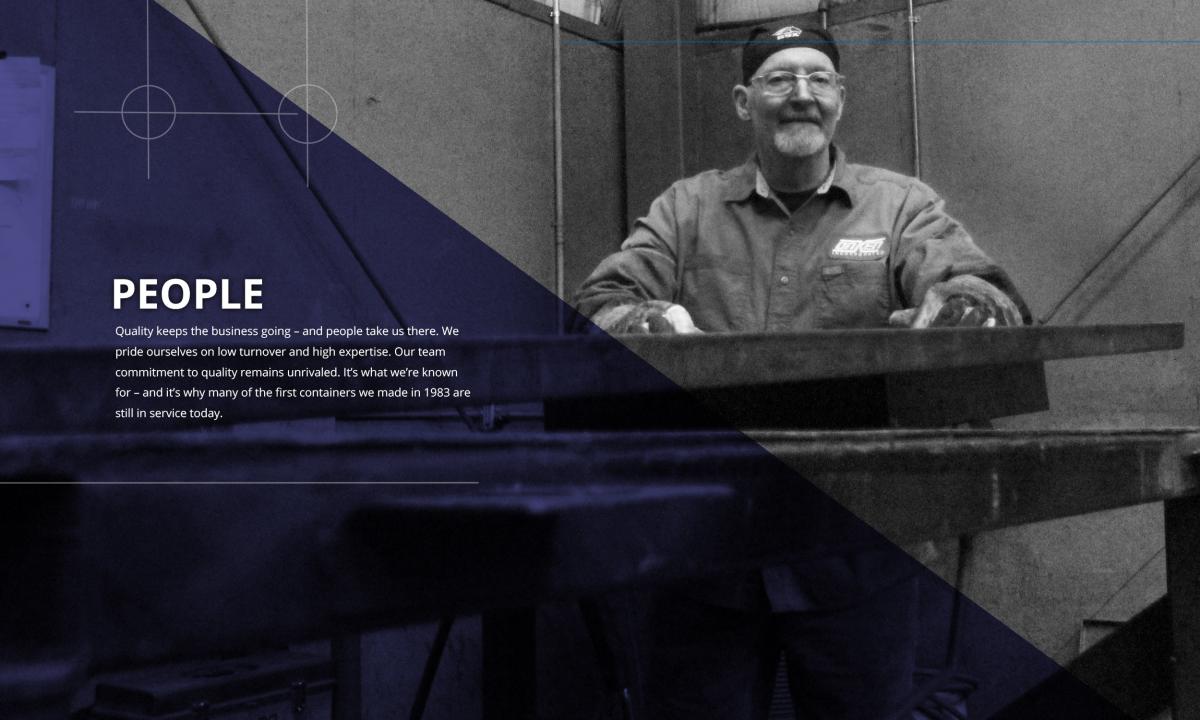The Onken’s Story
When Don Onken took a job at a rendering company, he soon realized he’d joined a struggling industry – many companies couldn’t afford to run their restaurant businesses with their current system of 55-gallon drums to store and collect used cooking oil. While others lamented the state of the market, Don set to work. Combining a natural talent for engineering with nearly a decade of mechanic, body, fabrication and welding experience, he designed a solution – and revolutionized an entire industry.
“That’s what motivates – to figure out things others can’t.”
Don’s bulk system saved man hours and reduced equipment costs by allowing double the storage in the same footprint and emptying the container on site so there was no need to transport the weight of the container. His bulk container and trailer system for collecting used cooking oil became the first of more than 20 patents he has accumulated. That was 1983, and most of those first containers are still in service.
“We probably do too good of quality. Many of our products built in 1983 are still operating today.”
Which made Don realize perhaps it was possible to produce too good of quality products, if customers didn’t need to replace them often enough. He put his mind to work again, this time devising a way for his bulk system to collect used filters for the oil industry, which at that time using the same 55-gallon drums the grease industry had used. Don and a partner soon launched sister company Oil Filter Recyclers of Illinois, providing a new sales channel for trailers and bins, and catching the attention of Safety Kleen, who tapped the company with a strategic contract for oil filter pickup, the first of many loyal contract customers.
“We want to do things not only better than the competition but different from the competition.”
Through the years, Don and the Onken’s team continued to innovate and expand the product line to include additional solutions like enclosed and outdoor containers for cooking oil, single and double wall tanks for automotive oil and yellow grease, recycling trailers and containment cabinets – plus more innovations on the horizon. As the product selection evolves, so has the family of companies, with Safety Kleen purchasing Oil Filter Recyclers in 2015.
While the company has continued to evolve from the grassroots business that started it all, our core mission remains the same: building better every day. Don started it all with a mindset to set the standard for the industry, and we still live by that today. On the rare occasion challenges rise, customers trust that Onken’s will not only make it right, but make it better. Simply put, quality is the Onken’s way.
“Quality is more important than quantity. Quantity makes you money. Quality keeps the business going.”
For more information on Onken’s or any of our products, contact OnkenSales@Onkens.net or 309-562-7271.






